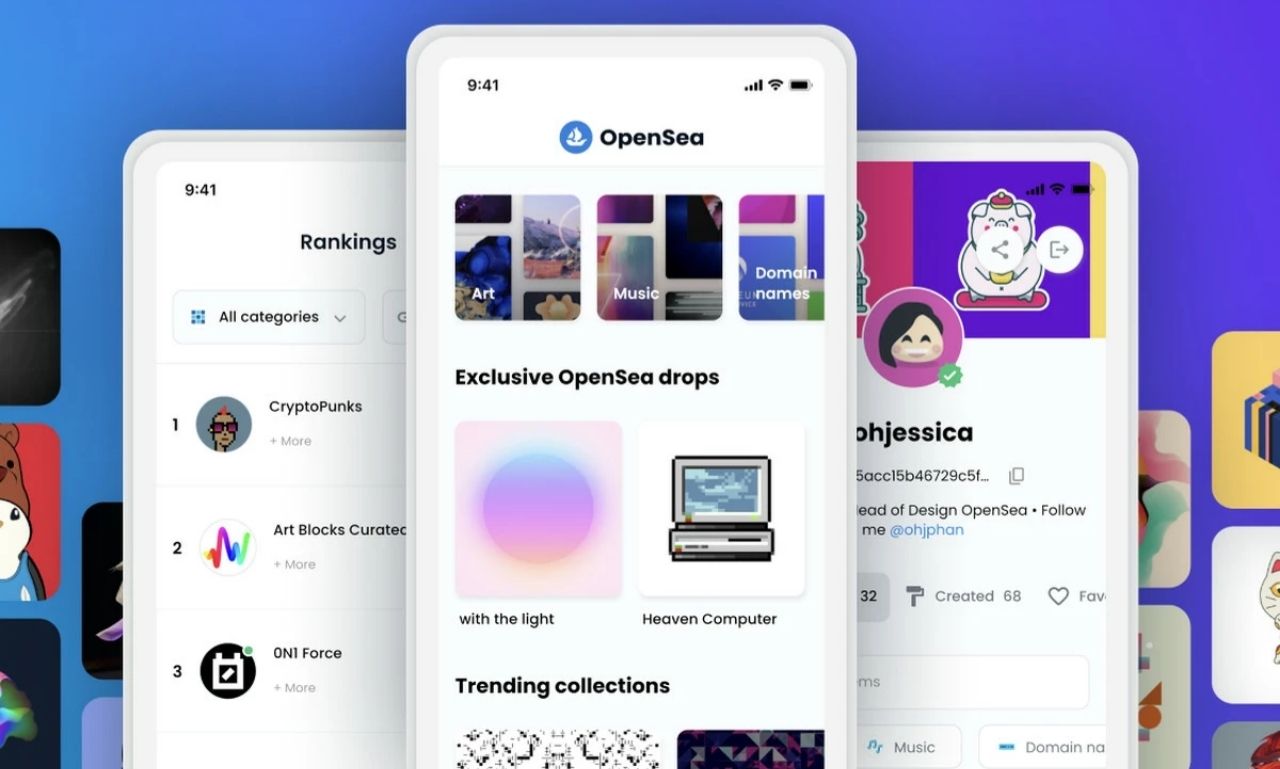Users have voiced their displeasure with the policy of OpenSea, which, according to certain customers, penalizes users who have accidentally acquired previously stolen NFTs.
Because of the surge in the number of fraudulent NFT transactions, Web3 platforms are increasingly being obliged to deal with the identification and management of stolen assets. OpenSea has taken the brunt of this Web3 obligation because it is the largest NFT marketplace; nonetheless, its strategy of blocking identified assets has garnered considerable reaction, particularly because it punished customers who were unaware that they were purchasing stolen NFTs.
As a direct response to the criticism, OpenSea said on Wednesday through Twitter that it will modify how it deals with NFT assets reported as stolen.
In the past, OpenSea prevented stolen assets from becoming purchased, sold, or exchanged on its marketplace while investigating each case. This resulted in indefinitely placing a hold on access to such NFTs and their associated values.
What Changes Has OpenSea Made To its Policies?
OpenSea stated in a tweet that it wants to “address the elephant in the room” and added that it will now need a police statement to be filed within seven days after reporting an NFT as stolen.
The tweet also stated that it wanted to “address the elephant in the room.” The marketplace says that it has performed these actions in the past for “escalated disputes,” but going forward, it will be necessary for any NFTs that are said to have been stolen.
This action is being taken to avoid bogus reports. If a police report is not filed within the allotted time, the hold placed on the items will be removed.
In addition, OpenSea has stated that it will simplify rescinding a claim once a user has recovered their stolen NFT or if they wish to withdraw a report for any other reason. This will take place once a user’s stolen NFT has been recovered.
On Thursday, OpenSea clarified through a tweet that the requirement for a police report will only apply to claims submitted for stolen NFTs for the first time and will not apply to cases already open. “If we applied this retroactively, we would be asking them to take additional steps months or weeks later after they’d (hopefully) put this behind them,” the marketplace tweeted. “If we applied this retroactively, we would ask them to take an additional step.”
A non-fungible token, or NFT, is a type of token that may be used on blockchains. NFTs are typically utilized for the purchase of digital products. Examples of popular applications for NFT include works of art, profile images, digital treasures, and things in video games. OpenSea is the most important marketplace for NFTs; before the recent meltdown in the cryptocurrency market, it routinely processed billions of dollars worth of trade volume every month.
4/ So why do we have this policy? It is against US law to knowingly allow the sale and transfer of stolen items. We do not want to incentivize theft by allowing our platform to be used to help sell stolen items.
— OpenSea (@opensea) August 10, 2022
How Do Scammers Deceive People Off Their NFTS?
Scams are meant to deceive users into signing what they perceive to be a valid transfer with the crypto wallet—such as a new NFT or token drop—but instead provide hackers entry to all the resources in the signature wallet, enabling them to move and steal NFTs and other tokens, have seen an increase in prevalence as the NFT market has developed and matured.
These scams are aimed at deceiving users into accepting what they believe to be a genuine transfer with their crypto wallet—such as for
Accounts belonging to legitimate authors and projects, such as Beeple and Nouns, have been hacked and exploited to promote links that can lead to assets being stolen.
This scam has grown frequent on social networking platforms, particularly Twitter. It has sparked a discussion on whether developers should compensate users who have their NFTs stolen in such circumstances.
OpenSea has stated that it cannot knowingly permit the selling of NFTs flagged as stolen because its headquarters are in the United States. Users who bought NFTs without realizing that they had been stolen in the past may find that they cannot transact or transfer the asset due to the marketplace’s broad policy towards blacklisting reported assets. This is because of the marketplace’s broad policy toward blacklisting reported assets.
“In some instances, the buyer who unwittingly purchased a stolen object (through no fault of their own) was mistakenly made to pay a higher price. OpenSea admitted on Twitter that this is one of the most challenging problems that we are up against. “We ask that you have faith that we are taking it seriously and that we have been attentively taking in your suggestions for how to address it.”
Note that although OpenSea can ban users from buying, selling, or transferring certain NFTs on its marketplace, this does not preclude users from engaging in financial transactions in other environments.
Users can use other markets that do not have the same policies or have not similarly flagged those assets as stolen if they choose to keep their owned NFTs in their wallets. This gives them more flexibility.
OpenSea also mentioned that it is collaborating with other Web3 platforms to try to reduce the negative effects of scams involving NFTs and to educate users more effectively.
10/ Beyond that, we are collaborating closely with ecosystem partners to help prevent and disincentivize theft, and building better education resources to help users stay safe in web3.
— OpenSea (@opensea) August 10, 2022
It referred to a recent update to the popular Ethereum wallet known as MetaMask. This change raises users’ awareness of the fact that they are giving away broad access privileges with certain transactions. Broad access is typically sought out to carry out attacks like this.
